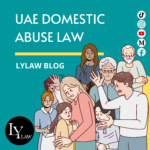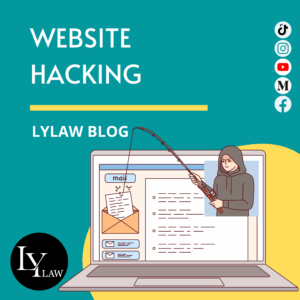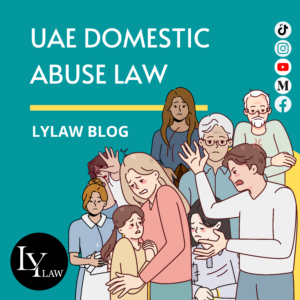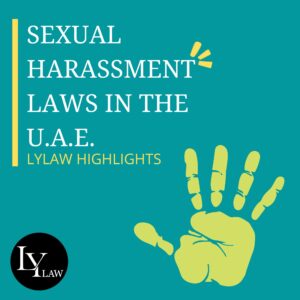
The UAE has recently updated its domestic abuse laws with the introduction of Federal Law No. 13 of 2024, superseding the 2019 regulations. These changes reflect a broader scope of protection, incorporating newer forms of abuse and expanding support for vulnerable groups. Below is a detailed comparison highlighting the key differences between the 2019 and 2024 laws, shedding light on the evolution in legal frameworks surrounding domestic abuse in the UAE.
| Feature | Federal Decree-Law No. 10 of 2019 | Federal Law No. 13 of 2024 |
| Title of the Law | Federal Decree-Law No. 10 of 2019 on the Protection Against Domestic Violence | Federal Law No. 13 of 2024 on Domestic Abuse |
| Scope and Definition of Domestic Abuse | Defined domestic abuse as physical, psychological, sexual, and economic harm caused by a family member to another. | Expanded the definitions with specific criteria for each type of abuse, including clearer distinctions between types of harm. Added protections for domestic workers. |
| Inclusion of Domestic Workers | No specific mention or inclusion of domestic workers under protection. | Explicitly includes domestic workers as protected individuals under the law. |
| Physical Abuse | Defined as any physical harm caused to the victim’s body, even without visible injury. | Retains the original definition but adds new criteria: repeated threats or gestures causing fear, confinement or restriction of movement, and acts resulting in physical or mental disability. |
| Psychological Abuse | Defined as any act or word causing emotional or psychological harm to the victim. | Expands definition to include coercive control, cyberbullying, and isolation tactics. Adds criteria for non-physical threats, harassment, and intimidation through electronic means. |
| Sexual Abuse | Covered non-consensual acts of a sexual nature, including harassment and exploitation. | Adds specific criteria: sexual coercion through threats, withholding resources in exchange for sexual acts, and digital exploitation (e.g., demanding explicit content). |
| Economic Abuse | Defined as depriving the victim of their financial resources or control over the use of their money. | Provides a more detailed breakdown: withholding salaries, using victim’s financial resources without consent, creating financial dependency, and incurring debt in the victim’s name. |
| Electronic Communication Restrictions | Did not include specific provisions on restricting electronic communication as a form of abuse or in protective orders. | Introduces new restrictions specifically for electronic communication. Protective orders can now include: <ul><li>Blocking electronic communication between the abuser and victim, including texts, emails, and social media messages.</li><li>Prohibiting the use of electronic devices to harass or intimidate the victim.</li><li>Restricting access to electronic information or data that may compromise the victim’s safety.</li></ul> Additionally, digital coercion, such as forcing the victim to share personal content or using threats via electronic means, is now classified under psychological and sexual abuse. |
| Protective Orders and Restrictions | Allowed for the issuance of restraining orders by the Public Prosecution, with a maximum duration of 6 months. | Adds new restrictions: prohibiting electronic communication, enforcing electronic monitoring for compliance, and introducing emergency protection orders for immediate relief. |
| Financial Penalties | Fines ranged from AED 1,000 to AED 10,000 for restraining order violations, and up to AED 5,000 for other forms of abuse. | Increased fines, ranging from AED 5,000 to AED 50,000. Violations of restraining orders can now incur fines up to AED 20,000. Expanded penalties for economic and psychological abuse. |
| Imprisonment | Imprisonment of up to 3 months for restraining order violations, and up to 6 months for domestic abuse offenses. | Imprisonment remains up to 6 months but includes double penalties for repeated offenses within one year. Applies imprisonment for severe economic or psychological abuse cases. |
| Focus on Rehabilitation | Limited focus on rehabilitative measures, mostly emphasizing punishment. | Strong emphasis on rehabilitation, including mandatory counseling, behavioral correction programs, and ongoing monitoring of rehabilitative progress. |
| Reporting and Victim Support | Victims could report incidents to authorities, and the Public Prosecution could issue protective orders. | Enhances victim support with clearer reporting mechanisms, coordination between agencies, and emergency shelter and counseling services. |
| Special Protections for Vulnerable Groups | General protections for children and family members but did not specifically address additional groups. | Expands protections to cover children, domestic workers, and vulnerable individuals. Includes specific protections for these groups and more detailed emergency response protocols. |
| Reconciliation Procedures | Public Prosecution could propose reconciliation before proceeding with action. | Maintains reconciliation procedures but places more restrictions on reconciliation in severe cases and limits reconciliation where children are involved. |
| Penalties for Repeat Offenses | Penalties could be doubled for repeated offenses but only in severe cases. | Doubles penalties for any repeat offense occurring within one year, regardless of severity. Introduces stricter enforcement for repeated violations of protective orders. |
| Implementation and Enforcement | Implemented through Public Prosecution and family protection centers. | Strengthened enforcement mechanisms with increased coordination among law enforcement, social services, and healthcare providers. Improved training and resource allocation for handling domestic abuse cases. |
| Relation to Previous Laws | Coexisted with other personal status and family protection laws, with limited interactions. | Repeals and supersedes conflicting provisions in the 2019 law, making it the primary legislation for domestic abuse cases moving forward. |
| Agencies and Authorities Involved | Involved the Public Prosecution, Family Protection Centers, and Police Authorities for enforcement and reporting. | Broader involvement of agencies: Public Prosecution, Family Protection Centers, Police Authorities, Social Services, and Healthcare Providers. Mandates closer coordination between these entities and introduces roles for Community Development Authorities to ensure holistic support for victims. Additionally, the Ministry of Human Resources and Emiratisation is included for cases involving domestic workers. |
In conclusion, the evolution of the UAE Domestic Abuse Law reflects a commitment to enhancing the safety and rights of all individuals, with a focus on more inclusive and comprehensive protections for victims. If you or someone you know needs assistance navigating these changes, please contact our law firm for expert guidance and support.






